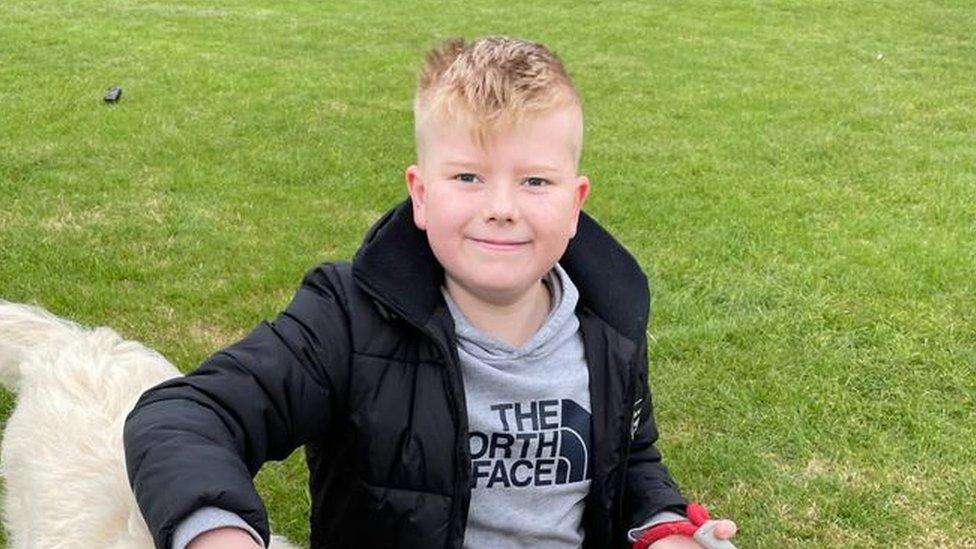Peterborough father's brain tumour shock after new baby born
- Published
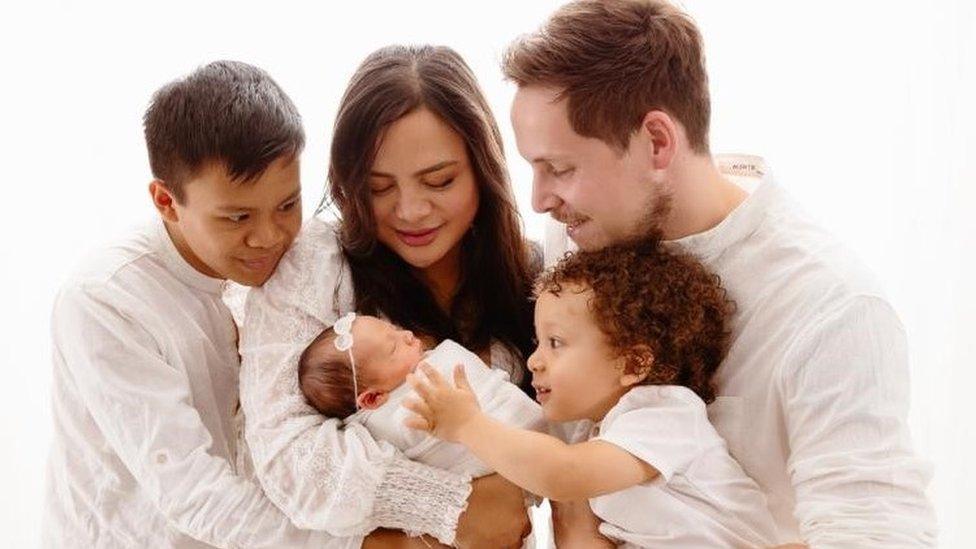
The family learnt of Sam Bravo-Hibberd's brain tumour just weeks after his youngest child was born
A woman has spoken of her shock after learning her husband had brain cancer weeks after their daughter was born.
Mauricee Bravo-Hibberd's husband Sam, 34, from Peterborough, was diagnosed with an inoperable glioblastoma (GBM) in September.
She said: "We had a normal, comfortable, albeit somewhat-hectic family life until suddenly we didn't."
The father-of-three was told he had eight to 12 weeks to live and was referred to palliative care.
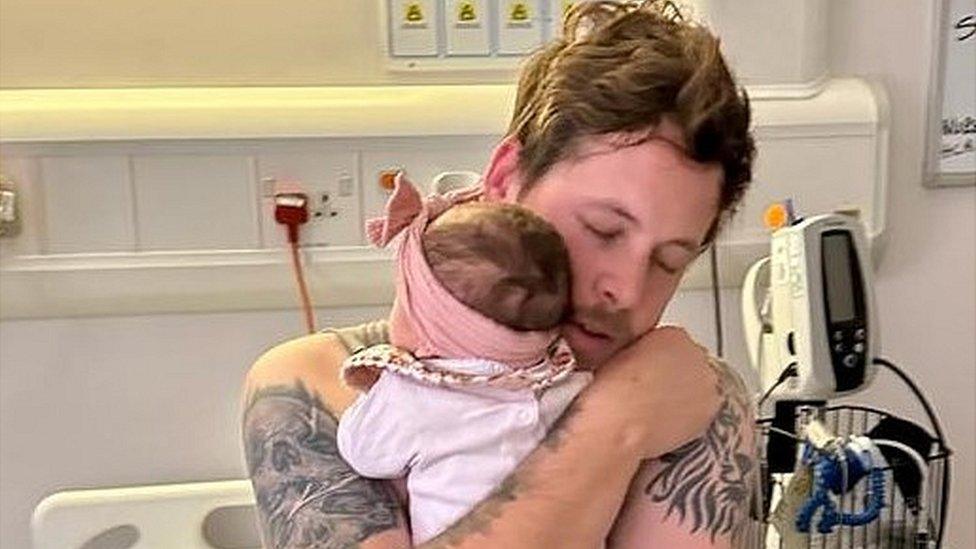
The 34-year-old underwent radiotherapy after a private clinic removed some of the tumour
Mr Bravo-Hibberd had experienced personality changes for at least a year and suffered from headaches, taste auras and confusion for about two weeks prior to his diagnosis.
He underwent an open biopsy, where some 30% of his tumour was removed and is now undergoing radiotherapy.
Mrs Bravo-Hibberd, 37, is attempting to buy him more time by working with charity Brain Tumour Research to source alternative treatments such as immunotherapy and tumour treating fields.
She has turned to crowdfunding as they are not yet available on the NHS and cost from £17,000 per month to £250,000.
She said people had already "been very generous and we are so grateful".
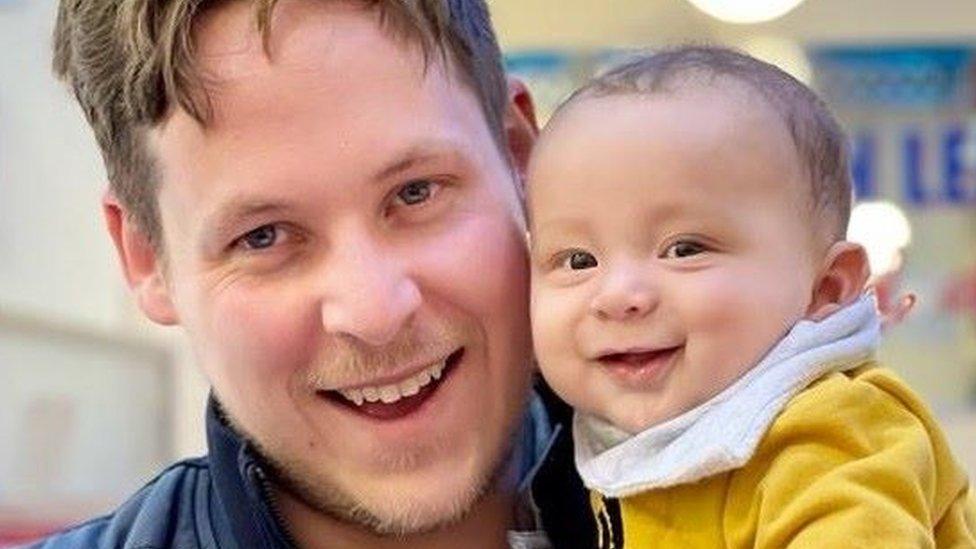
Sam Bravo-Hibberd with his youngest child
"I really miss that now, the blissful chaos, manic mornings prepping for work, school and nursery, and Sam and our boys playing football in the garden as I watched from the kitchen," she added.
"Sam used to do most of the running around because he worked locally in recruitment, whereas I have a substantial role in healthcare about an hour away and work longer hours.
"I'm currently on maternity leave, having had our daughter three months ago and am now also Sam's full-time carer. Our lives feel like a living nightmare."
Charlie Allsebrook, community development manager for Brain Tumour Research, said: "Sam's heartbreaking story is a stark reminder of the indiscriminate nature of brain tumours, which can affect anyone at any time.
"They kill more children and adults under the age of 40 than any other cancer, yet just 1% of the national spend on cancer research has been allocated to this devastating disease since records began in 2002."
If you have been affected by any of the issues in this story, the BBC Action Line has links to organisations which can offer support and advice.

Follow East of England news on Facebook, external, Instagram, external and X, external. Got a story? Email eastofenglandnews@bbc.co.uk , externalor WhatsApp on 0800 169 1830
Related topics
- Published23 November 2023
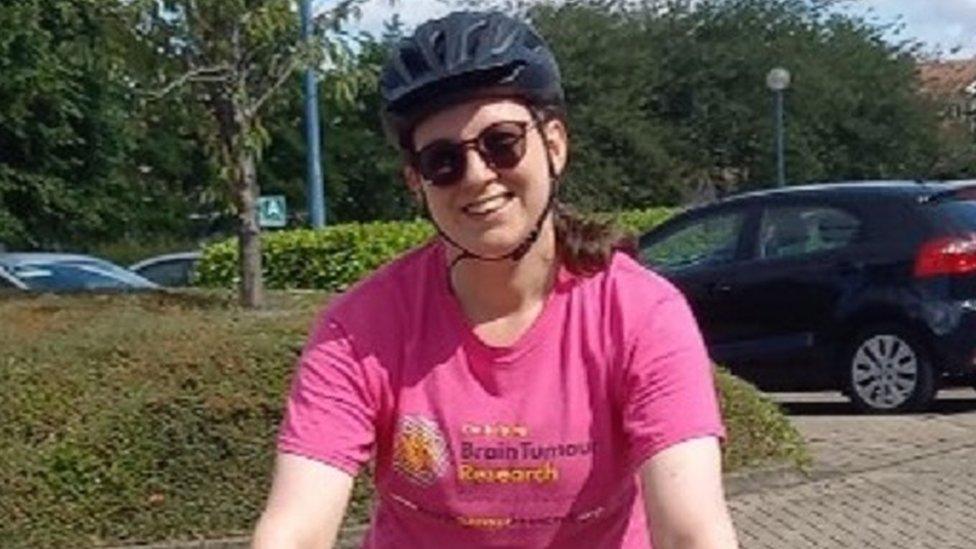
- Published10 November 2023
